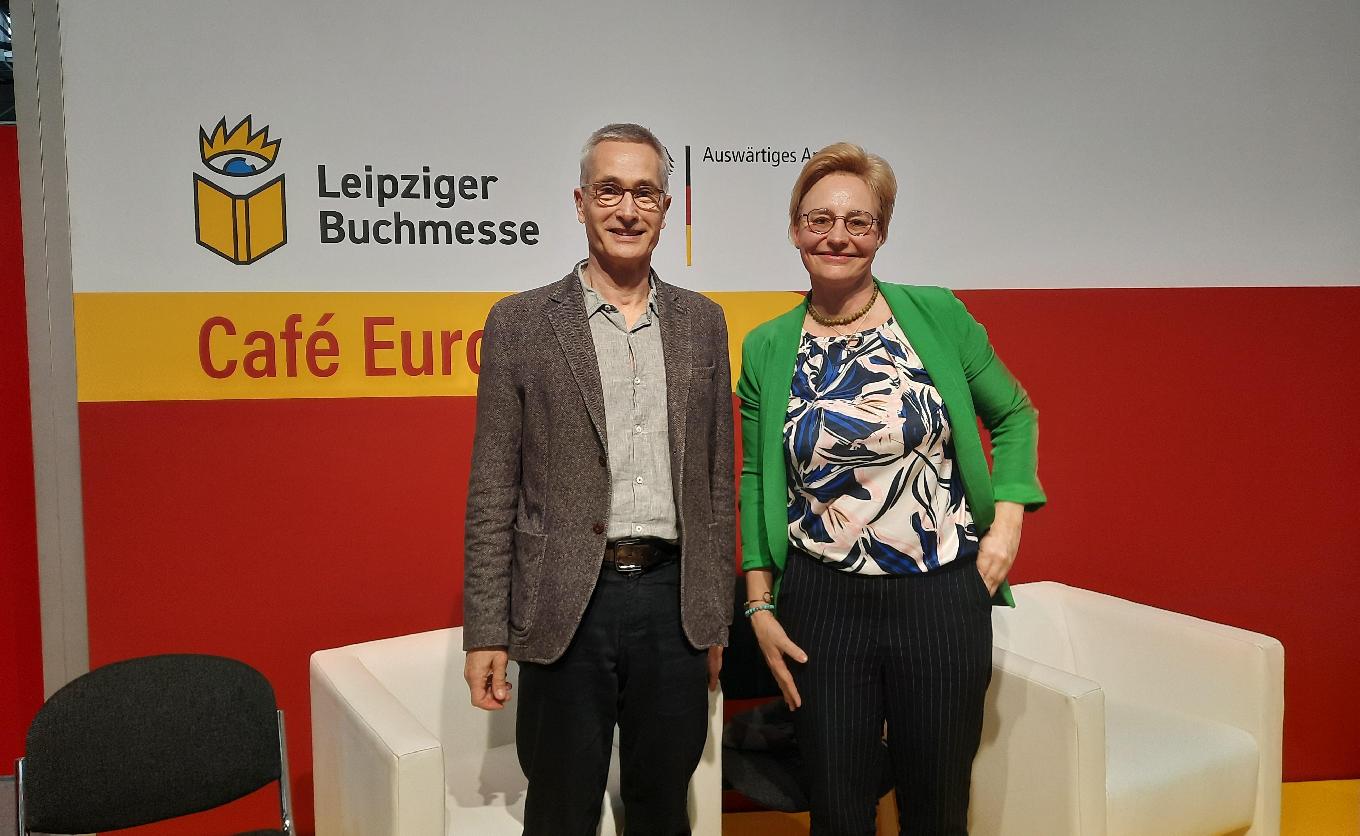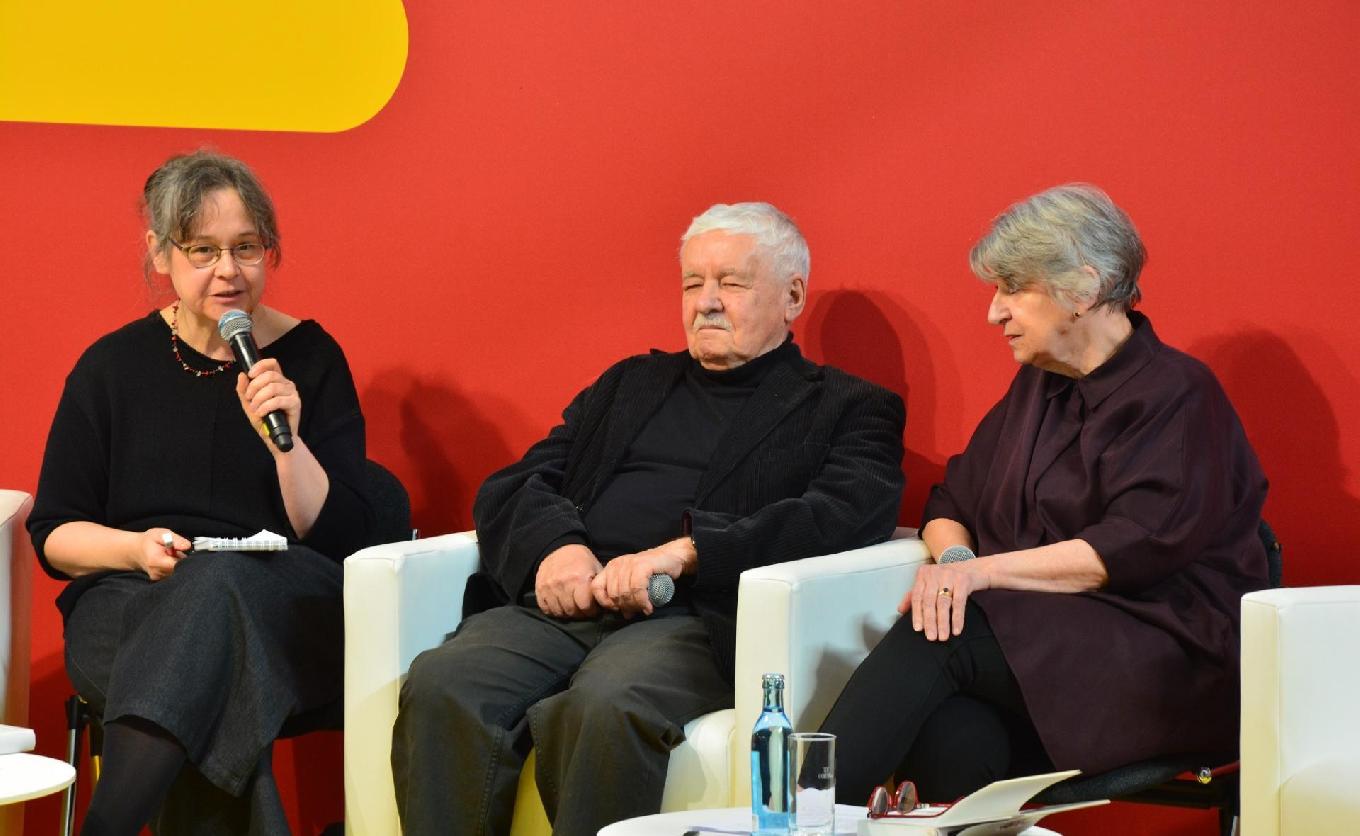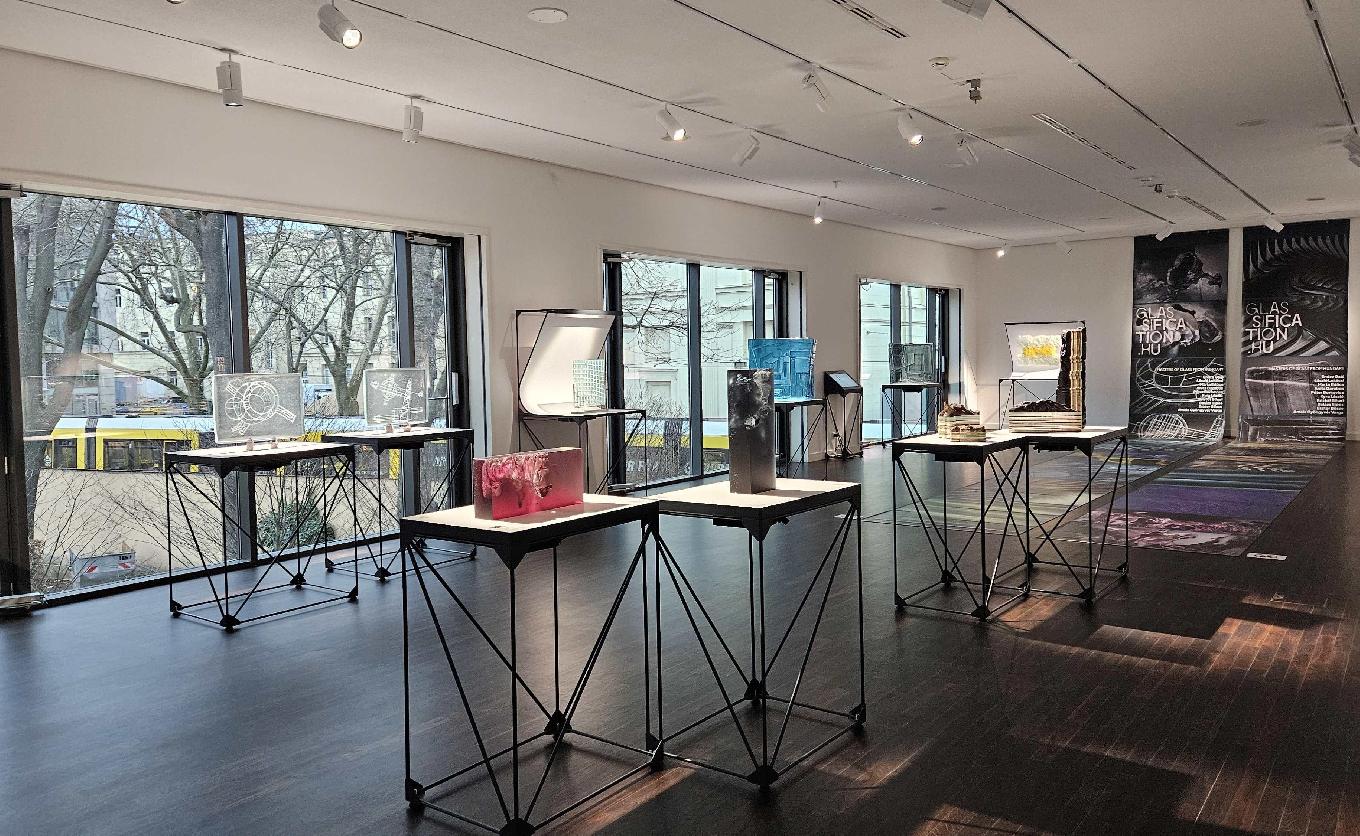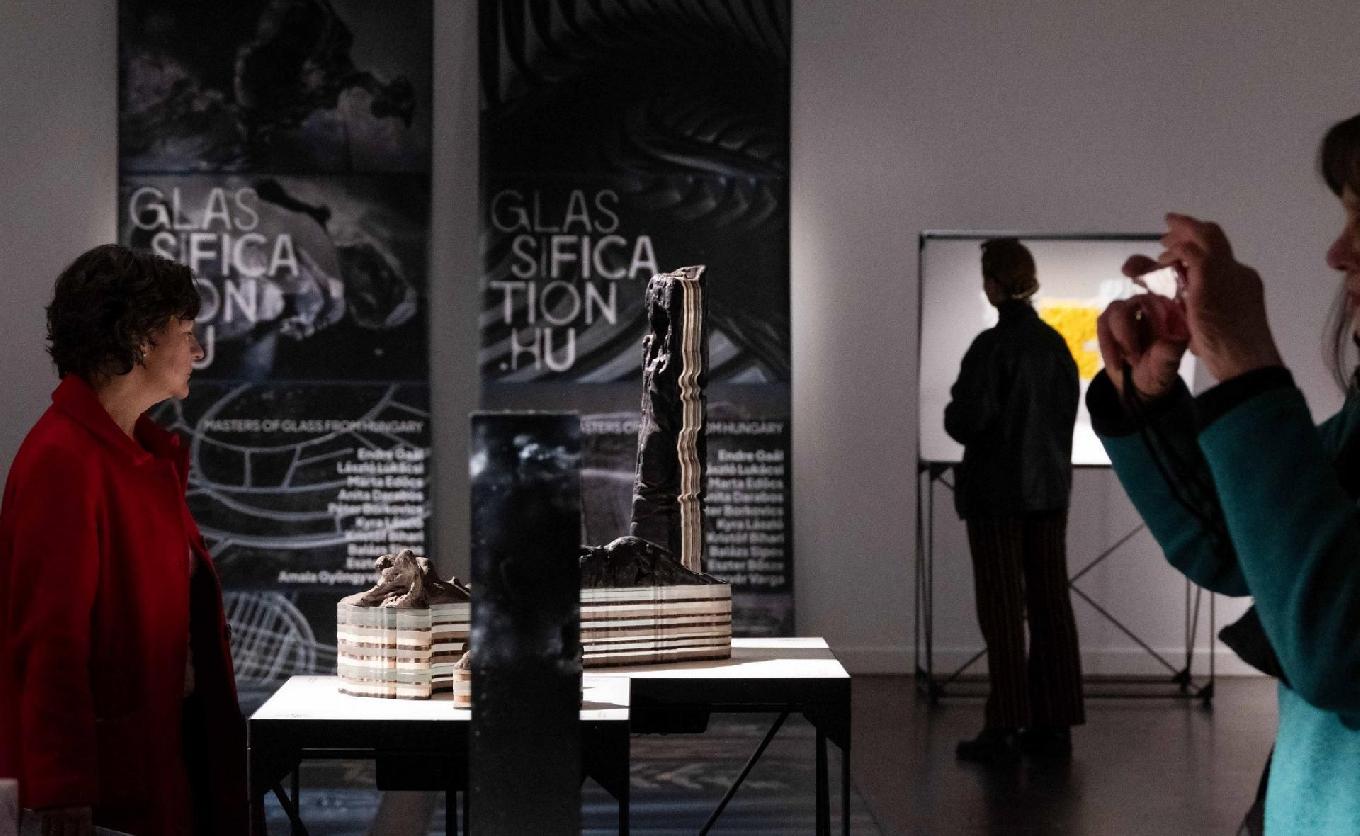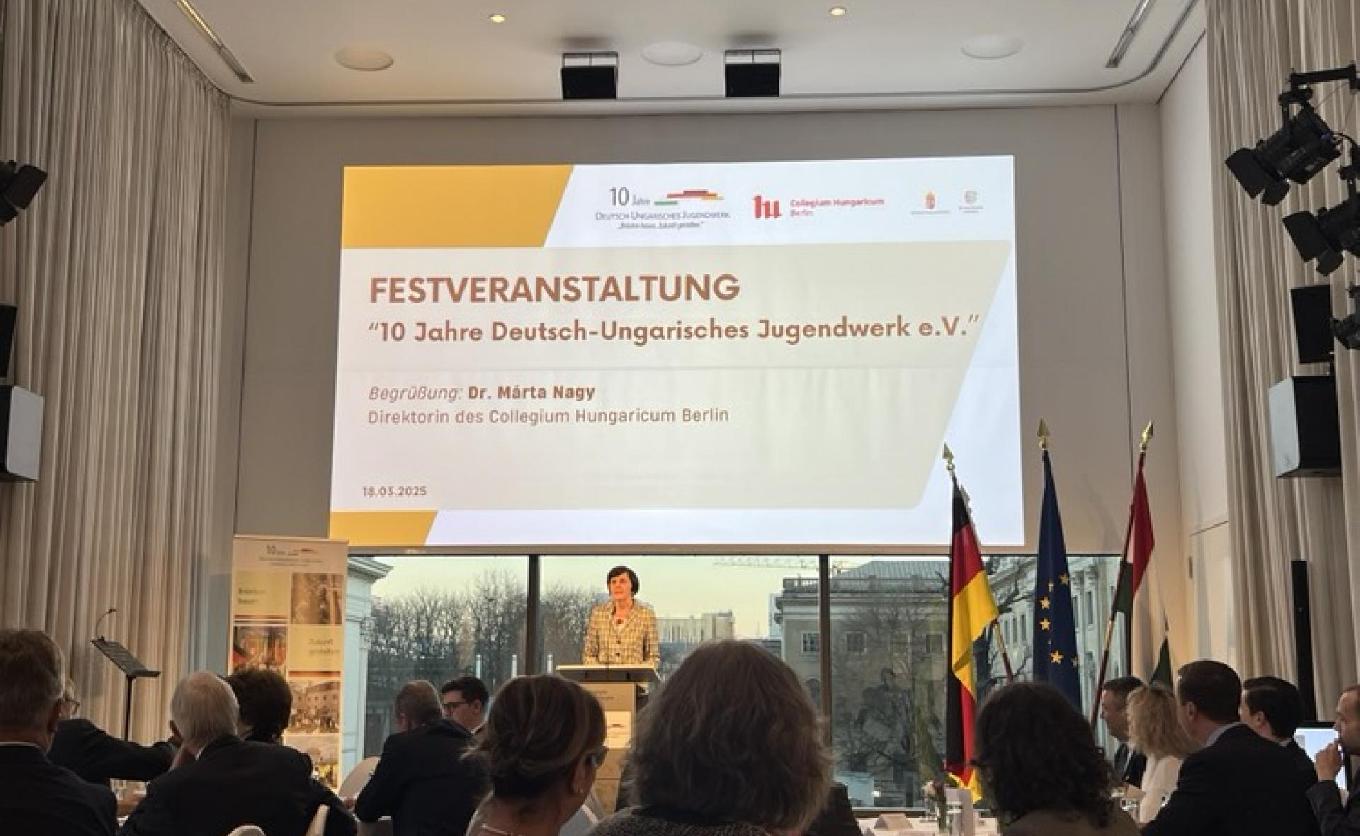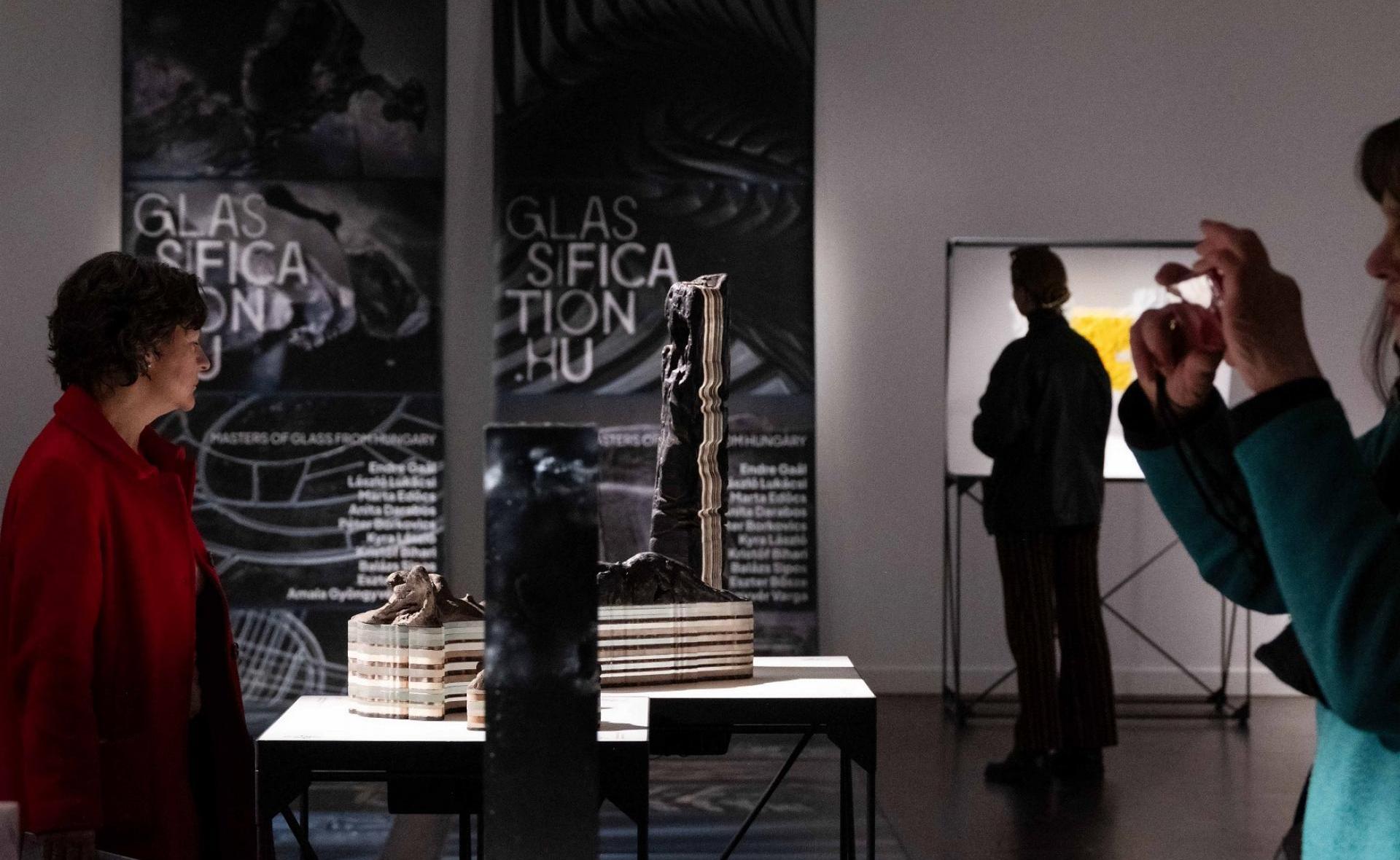
Proud Hungarians in Germany
March was a rich and intense month for the Collegium Hungaricum in Berlin. During this time, they opened the highly successful “Glassification.hu” exhibition, organized by the Ministry of Foreign Affairs and Trade, and also held a Hungarian Day event to mark the national celebration of March 15. The Hungarian cultural institute in Berlin celebrated the 10th anniversary of the Hungarian-German Youth Association, which plays an important role in bilateral relations, with a full-day program. With the professional collaboration of the institute and the organization of the Petőfi Cultural Agency, four newly published books by Hungarian authors in German were presented at the Leipzig Book Fair.
The Ministry of Foreign Affairs and Trade's highly successful Glassification.hu exhibition is on display at the Collegium Hungaricum in Berlin until April 24th. The exhibition showcases the abstract works of ten artists from four generations. The artists, who have received numerous national and international awards, including Gaál Endre, Lukácsi László, Edőcs Márta, Darabos Anita, Borkovics Péter, László Kyra, Bihari Kristóf, Sipos Balázs, Bősze Eszter, and Varga Gyöngyvér Amala, represent the technological diversity characteristic of contemporary Hungarian glass art. The title of the exhibition is based on the rarely used English noun glassification, which means “to turn something into glass.” At the same time, the title also echoes the popular English term gamification, reflecting the endless possibilities inherent in glass and the playful interaction with the material. The “.hu” ending refers to the digital age and ties the title to Hungary.
The Collegium Hungaricum in Berlin, together with 9 Hungarian communities and associations in Berlin, jointly organized the national commemorative event at the institute on the 177th anniversary of the outbreak of the 1848/49 Revolution and War of Independence. The event, which captured the authentic spirit of a Hungarian National Day, offered a variety of productions alongside opportunities for meeting, socializing, and engaging in conversations. Throughout the seven-hour event, the Pilvax Café was continuously open, while visitors could enjoy educational and entertaining stage performances, a choir concert, a dance presentation, live music, folk dance events for children and adults, creative workshops, and a pop music concert. The significance of the event also lay in its ability to strengthen the sense of community within the diaspora and successfully increase the local community's sympathy for Hungary.
The Hungarian-German Youth Association, which plays an important role in bilateral relations, is celebrating its 10th anniversary in 2025. To mark this occasion, on March 18, a festive event was organized at the Collegium Hungaricum in Berlin. In addition to providing the venue, the institute also assisted with the professional aspects of the event. he event began with a workshop in which the association's young members participated. Alongside Ambassador Dr. Györkös Péter, Elisabeth Knab, the president of the association, and István Hiller, former Minister of Education and Culture, took part in the discussion, moderated by Tünde Volf-Nagy. The evening’s protocol ceremony, which began with a welcoming speech by Márta Nagy, the head of the institute, was attended by numerous prominent guests. The ceremonial speeches were given by President Elisabeth Knab, Vince Szalay-Bobrovniczky, Deputy State Secretary for Civil and Social Relations at the Prime Minister's Office, Katharina Landgraf, former German parliamentarian and founding member of the association, and Moritz Übermuth, member of the federal presidency of the Junge Union. Union. Following the speeches, soloists from the Budapest Festival Orchestra performed, and the evening was concluded with a formal dinner.
The Leipzig Book Fair was held from March 27-30, where four Hungarian authors presented their newly published books, organized by the Petőfi Cultural Agency with professional support from the Collegium Hungaricum Berlin. On the opening day, two authors from the Vojvodina region were introduced: László Végel with his novel Temetetlen múltunk ("Our Unburied Past") and Ákos Kormányos with his poetry collection Töredezettségmentesítés ("Defragmentation"). While László Végel, who has received the Kossuth Prize, is one of the most significant representatives of Vojvodina Hungarian literature, Ákos Kormányos, an emerging poet, was introduced to the German audience. His unusual choice of themes and his literary treatment of his own physical limitations were met with great interest by the German audience, who are sensitive to such topics. On Friday, Földényi F. László, the 2020 Leipzig Book Fair awardee, presented his essay collection “A guillotine hosszú árnyéka” ("The Long Shadow of the Guillotine"). On Saturday, the German-language presentation of Noémi Kiss's book “Karácsony a Dunán” ("Christmas on the Danube") was moderated by renowned journalist Jörg Plath. The interest in Hungarian authors was exceptional at the Leipzig Book Fair.

